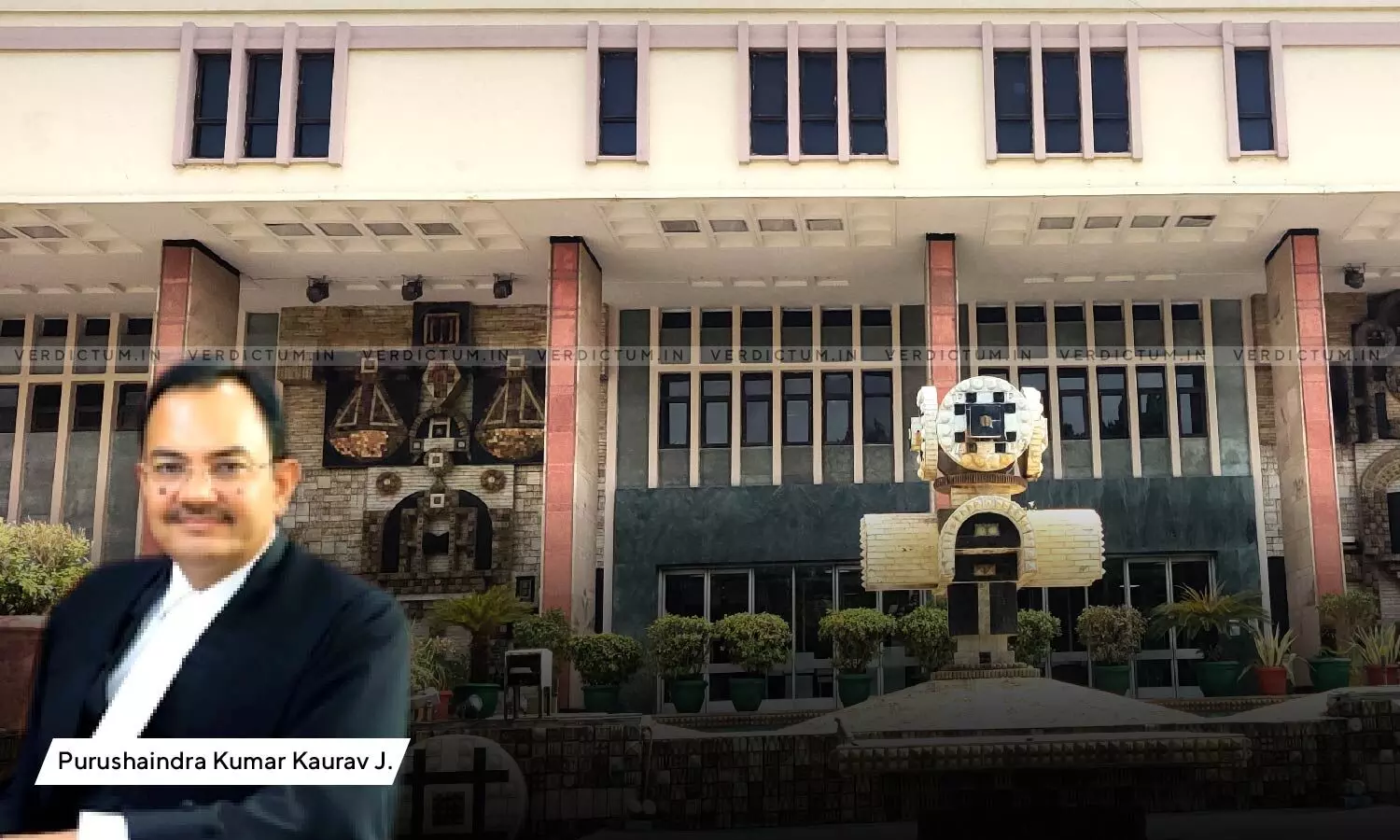
Article 226 Cannot Be Invoked To Frustrate The Object Of Recovery Proceedings Under SARFAESI Act: Delhi HC
 |
|Refraining to transgress into the domain of the legislature in order to fill a void in the Securitization and Reconstruction of Financial Assets and Enforcement of Security Interest Act, 2002 (SARFAESI), the Delhi High Court dismissed a petition seeking to overturn an order passed by the Court of the Chief Metropolitan Magistrate which paved the way for the Respondent (Religare Finvest) to take possession of the secured asset.
While commenting that the scope of writ jurisdiction cannot be allowed to trounce the statutory obligation, on the stratagem of efficacious alternate remedy, a Single Judge Bench of Justice Purushendra Kumar Kaurav observed that “if the Petitioners feel that there are irregularities or illegality in acting against them, the remedy would lie under Section 17 of the SARFAESI Act. Under the facts of the present case, the Petitioners cannot invoke Article 226 of the Constitution of India to frustrate the object of recovery proceedings”.
Moreover, the Bench observed from a fair reading into the nature and mandate of Section 34 of the SARFAESI Act, that the statutory obligation was not in tandem with the contentions of the Petitioners as it created an uncontrived friction in directly approaching the High Court without giving due consideration to the remedies available in the Act.
The Petitioners were represented by Advocate Praveen Kumar, whereas the Respondent was represented by Advocate Sanjeev Singh.
As per the brief facts of the case, the Petitioners challenged the vires of the order passed by the CMM under Section 14 of the SARFAESI Act, claiming that such order was passed in abuse of due process of law and at the instance of the Respondent which is a NBFC engaged in providing financial assistance to members of the public. It was alleged that the order was passed regarding a property which was under mortgage and in respect of which there was already an order of stay. The Petitioners claimed that the stay order operating on the mortgaged property was in continuance, having been renewed from time to time.
After considering the submission, the Bench referred to the judgment of the Supreme Court in case of Federal Bank Ltd. v. Sagar Thomas and Others [2003 (10) SCC 733], wherein the Apex Court rejected the claim of a private banking company to be falling in the category of instrumentality of State under Article 12 of the Constitution, and held that a private body or a person may be amenable to the writ jurisdiction only where it may become necessary to compel such body or association to enforce any statutory obligation which may be of public nature, casting positive obligation upon it.
Referring to a judgment of the Delhi High Court in Rajpur Hydro Power Ltd. and Ors. v. M/s PTC India Financial Services Ltd [(2017) SCC OnLine Del 8277], wherein it was held that the Petitioners are not entitled to invoke Article 226 of the Indian Constitution against the NBFC as the term ‘authority' cannot be given such a wide meaning to take in its ambit, the Bench explained that the Petitioners ought to have exhausted the alternate efficacious remedy available to them.
The Bench went on to observe that the Respondent by virtue of being an NBFC, which is not satisfactorily shown by the petitioners to be involved in discharging public functions, would not fall in the classification of ‘instrumentality' or ‘agency' of State or ‘any other authority' discharging public functions.
The Bench, therefore, concluded that the doors for exercising writ jurisdiction cannot be opened for the petitioners within the narrow scope of judicial review under Article 226 of the Constitution of India qua the NBFC and their action under the provisions of the SARFAESI Act.
Reverting to the present case, the Bench observed from a pragmatic analysis of the nature of transaction between the parties, that the petitioners had established a privity with the respondent vide loan agreement with an intention to reap monetary benefits.
Therefore, the said transaction does not involve any public element rather it seems to be a private affair between the two private parties based upon monetary consideration, added the Bench.
Accordingly, the Bench observed that it is inappropriate for the petitioners to seek a public law remedy under Article 226 of the Constitution in pursuance of a private transaction between the two parties which does not have any ramifications for the public at large.
Cause Title: Diamond Entertainment Technologies and Ors. v. Religare Finvest Limited [Neutral Citation: 2023: DHC: 5750]
Click here to read/download the Judgment